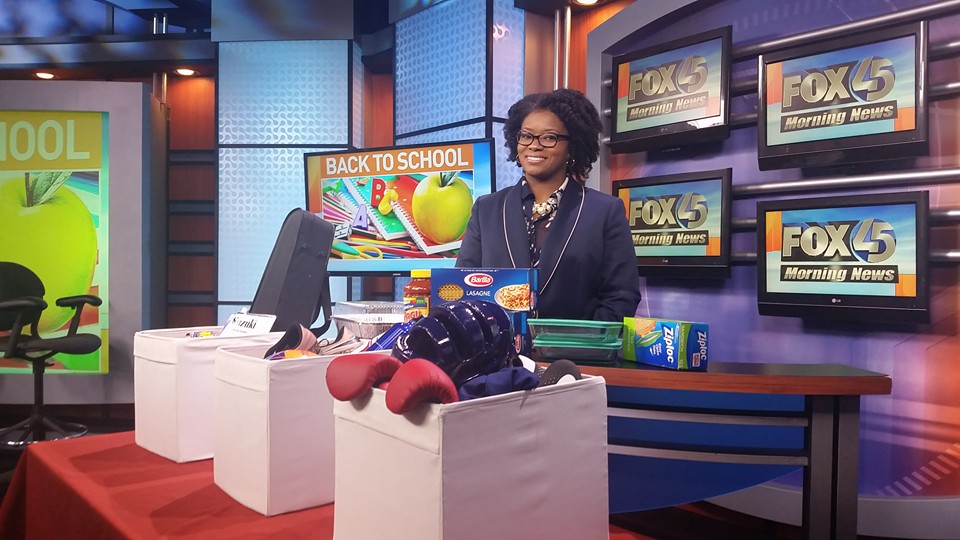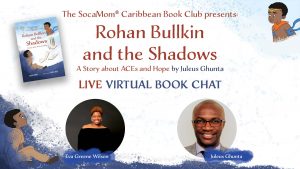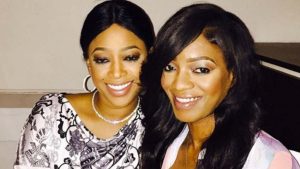“If you have no confidence in self, you are twice defeated in the race of life.” ~ Marcus Garvey
“Good morning! How are you feeling?” That’s how I greet the kids when they wake up each morning. Usually they answer with “fine” and a yawn with a stretch, then they sit down and slow blink until they are ready to tell me how they are really feeling about whatever is going through their heads first thing in the morning.
Growing up, I always figured that the question was rhetorical. My mom didn’t ACTUALLY want to know how I was feeling, and if she did, it was more about how I was feeling physically than mentally. That’s how it is in Caribbean homes sometimes. If you aren’t physically ill, then nothing could possibly be wrong – and even then…
Related: Is There Too Much Pressure on Caribbean People to Be Happy?
Just like any other kids (and adults), my kids have their particular insecurities about all kinds of things, real and imagined. That being said, I can say that they are pretty confident about their bodies and abilities. That could change because puberty hasn’t hit for my smallest two – and puberty could potentially change everything.
People have asked me how it is that my children seem so sure of themselves. I asked the kids what makes them feel confident, and they said that they “just are.” Some of it is probably who they are, but I still searched my memory to try to identify things that we actively do to support their innate confidence. Here are five things that came to mind.
1. We talk about what we think our shortcomings are openly and without shame. We let them know that it is okay to not be in love with certain attributes or inabilities – physical or mental – but that they are what make us who we are. We let them know that you love the whole you, just like God loves the whole you – perceived faults and all.
Related: I DID That! Paddle Boarding and Sailing in Negril, Jamaica
2. We talk about our childhood… a lot. I think part of being a confident child is knowing that “this too shall pass.” I show them awkward photos from elementary and middle school sometimes, and then move on to my college years when everything fell into place. They see me now, the person they love as is, and it is a reminder that they are in a stage of their lives – another stage is coming up soon.
3. We don’t avoid talking about their weaknesses. Do we dwell on them? No. But we do talk about them in terms of what they can do to improve in areas where improvement is necessary. For example, my daughter aspires to be a rhythmic gymnast, and is extremely flexible, but some of the moves require a strength that doesn’t come naturally to her. As a mom, I want to praise her for her efforts, especially since she is doing things that I could only dream of doing, but I think ignoring things she could improve upon gives her a false sense of confidence that could make her not trust me… or trust herself.
4. We try to model confidence. That isn’t easy when you’ve had adults and peers telling you what’s wrong with you, or what you can’t do, or what you can’t do well for so many years.

I have been very good at public speaking and interviews once I get on the set/stage, but in the past I was reluctant to do it.

We talked about me facing my fears and stepping into challenges with confidence, and now they jump right in to situations with no fear – just a bit of healthy nervous excitement because it is a new experience.
5. We try to give them the armor to walk into any situation and come out the whole person they were when they went in. Being stereotyped can chip away at anyone’s confidence and make them question who and what they are. We talk to them about their family history – uncle so and so was a great artist, or auntie so and so could really write amazing stories. We tell them about the entrepreneurs in our family, and the greatness that is in their genes so that any attack by someone who doesn’t know them rolls off.
Related: Black History Month: My Father’s Journey to the United States
My son was called the n-word, told that he was bigger and stronger (even though he was one of the smallest) because he was black, and that he must be fast because he is black. I fully expected him to be devastated, or at least clap back since he has always been nice with the words. He shrugged it off. “That’s not me – that’s some person they made up in their heads. I’m fast because I just am, and they could be faster too if they practiced.” We make sure that they KNOW who they are and what they stand for, so that no one else can convince them otherwise.
6. We check in on them regularly to see how they felt about themselves in certain situations. When my youngest child decided to get rainbow hair, and my oldest opted for a huge high top fade, I worried that what people had to say would bother them. I asked how they felt about people’s reactions, and to them, it was more about how they felt about their choices than what others felt. I do these check ins frequently enough to get the information that I need, but not so frequently as to project my insecurities onto them. I have my own issues and I have to be mindful of that.
Related: Rainbow Box Braids – Bold and Bright Doesn’t Have to be ‘White’
7. We encourage them to try as many things as they can. They don’t have to make a career of it, but they should at least give it a go – even if we both know that it might not work out the way that we thought it would.

My little one isn’t known for her athletic abilities, but we make sure she at least tries everything – from rock climbing to skiing… with protective gear of course!

Interesting thing about our ski outing was that the super athlete wasn’t particularly skilled at it, the one that we saw as the “middle of the road” athlete killed it, and the one who has trouble walking without falling was whizzing down the hill like a pro by the end of the day. You just never know.

After that experience, they have the confidence to try anything because you never know what your talent could be.
My kids are homeschooled, so unlike my experience where the battle was constant, they usually only deal with outside attacks on their confidence and self-esteem for a couple hours a day during sports and extracurricular activities. That doesn’t mean they have to be any less prepared.
Related: BMCC 2017: Celebrating Motherhood’s Milestones in Toronto

What do you do to bolster your kids’ confidence? As a kid, what did parents, teachers, and mentors do to successfully build your self-esteem? Please, share your experience in the comments.




